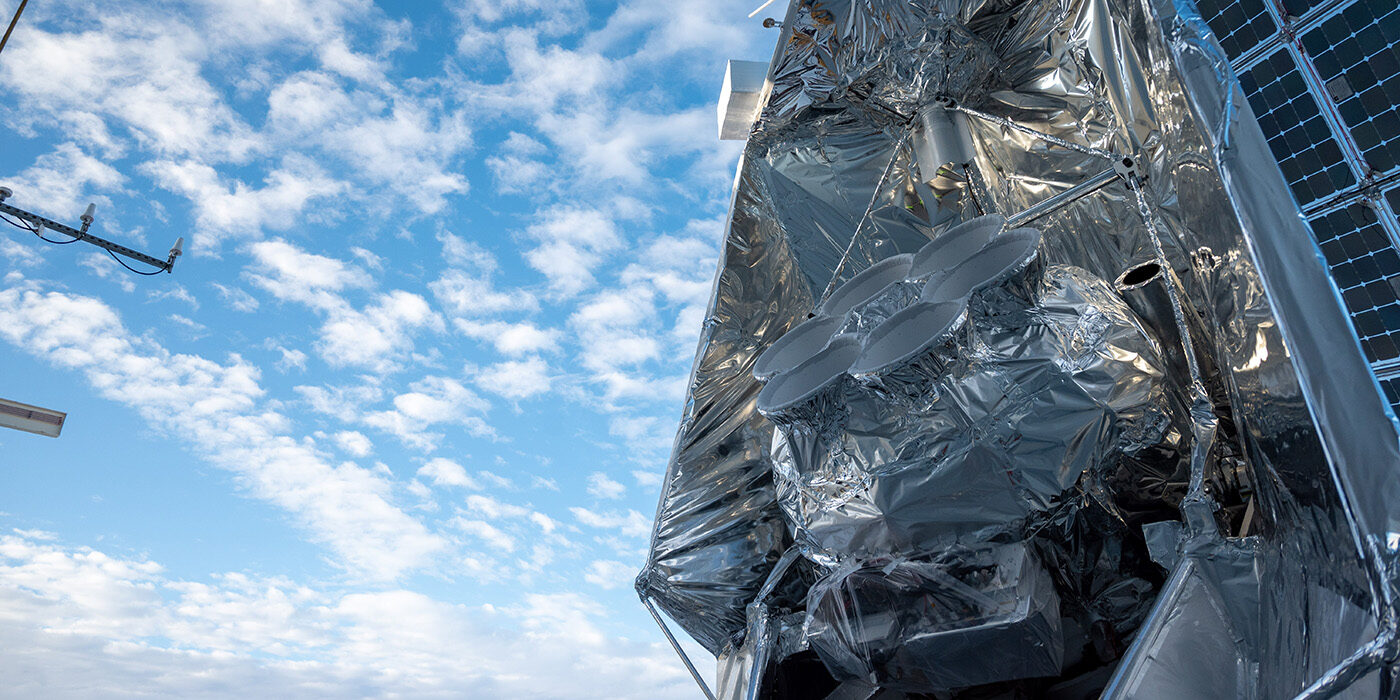A team of scientists including physicist Johanna Nagy at Washington University in St. Louis successfully launched a balloon-borne experiment studying the early universe on Dec. 21. The instrument, called SPIDER, was carried aloft by a scientific balloon from its launch pad in Antarctica.
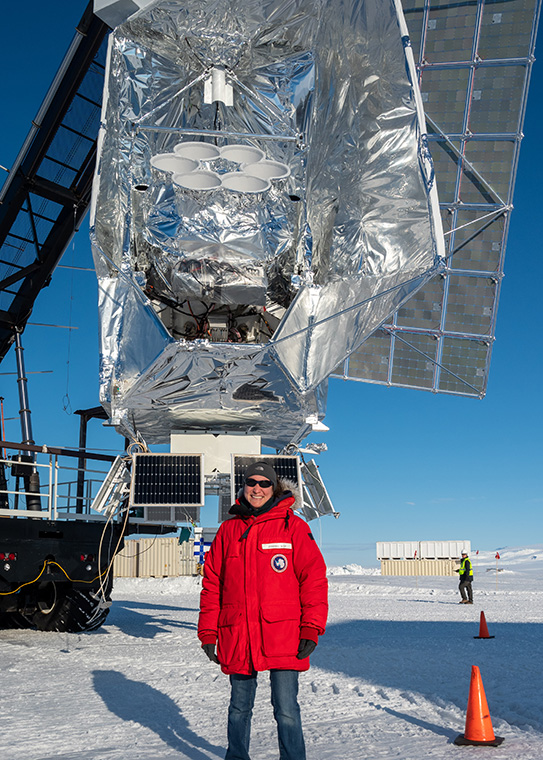
Nagy, an assistant professor of physics in Arts & Sciences, is one of a team of scientists who will use the SPIDER instrument to look for a pattern, or polarization, in the earliest light we can measure. This statistically unique fingerprint would be produced by interactions with gravitational waves that could be traced back to the beginning of the universe. The SPIDER project is led by researchers at the University of Illinois at Urbana-Champaign.
“By searching for a particular polarization pattern in the cosmic microwave background — one that flips in a mirror — SPIDER will tell us about the universe when it was much less than one second old,” Nagy said.
Nagy, a faculty fellow of the McDonnell Center for the Space Sciences, and her graduate student Jared May built many new items for SPIDER in her laboratory at Washington University.
The team has prepared for a three-week flight at an altitude of roughly 110,000 feet above Antarctica. At this height, SPIDER will be collecting measurements above 99.5% of Earth’s atmosphere.
Follow the SPIDER team’s progress on Twitter as the flight continues.
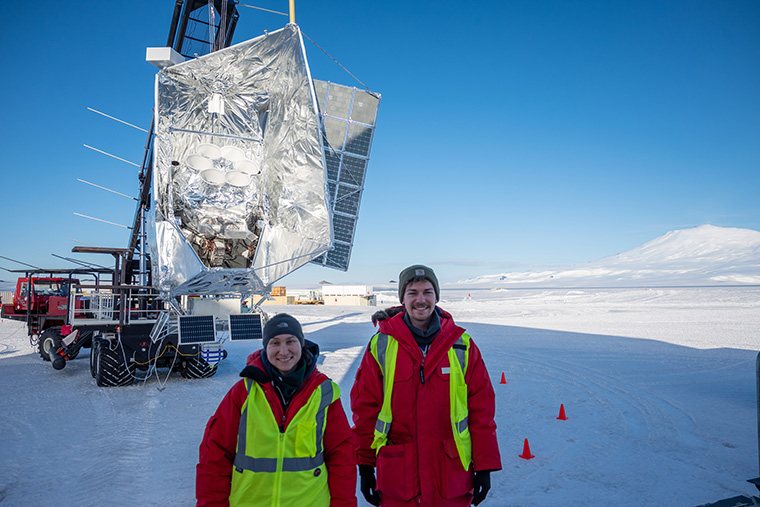
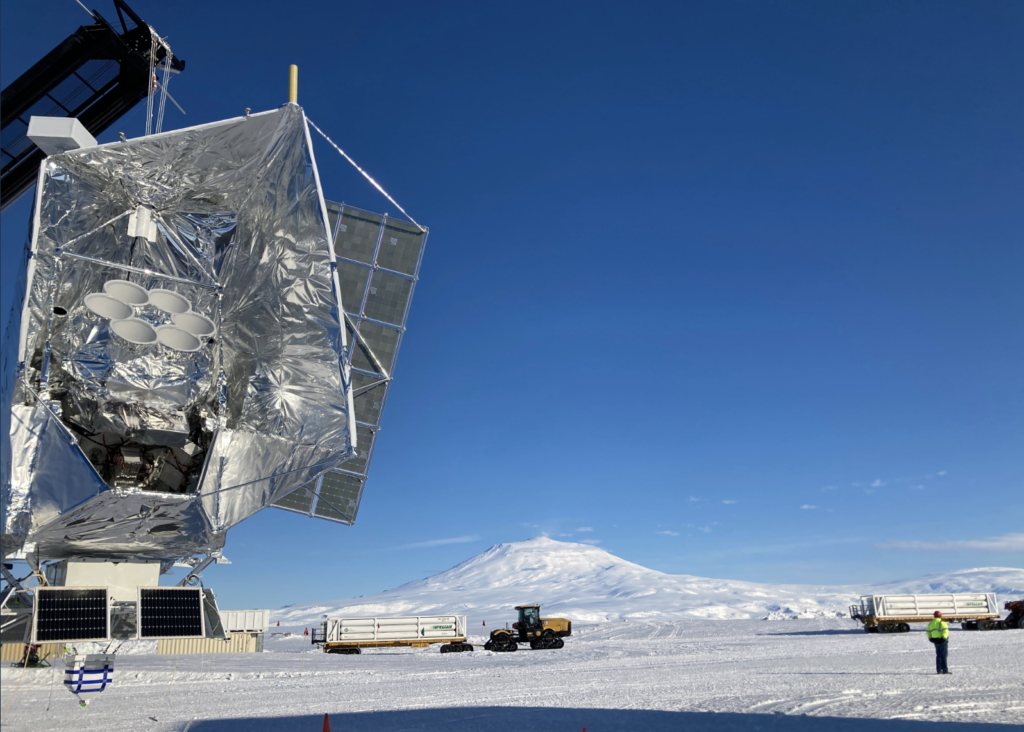
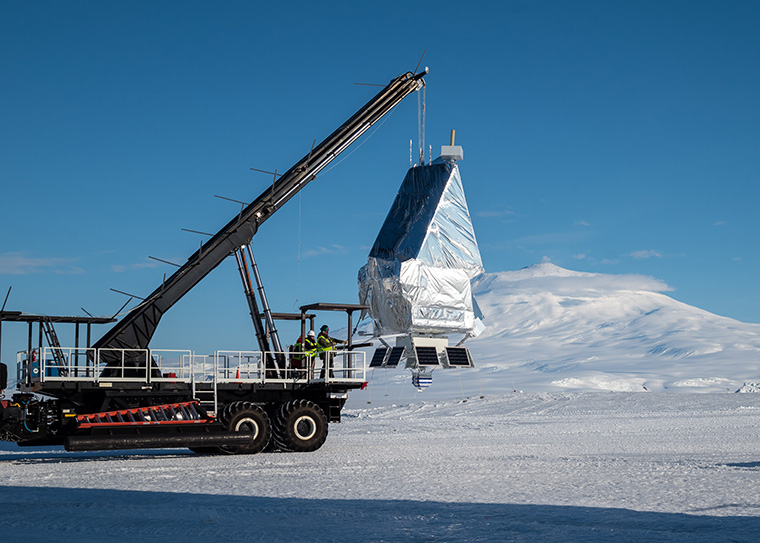
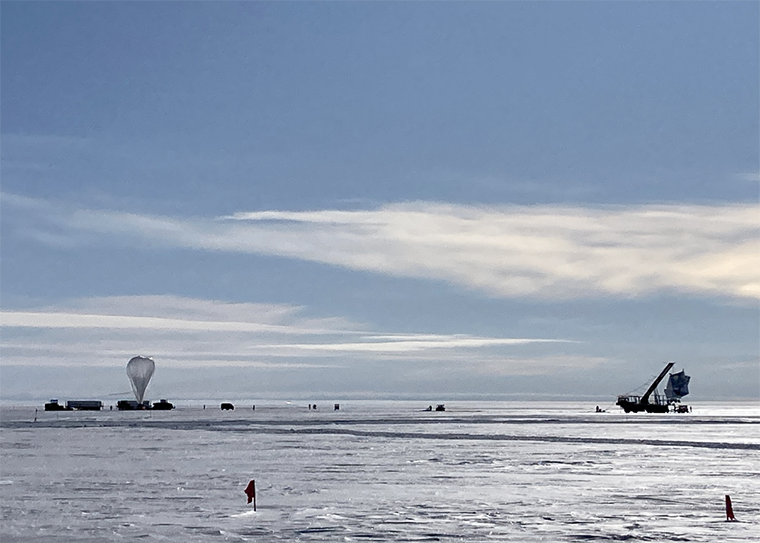
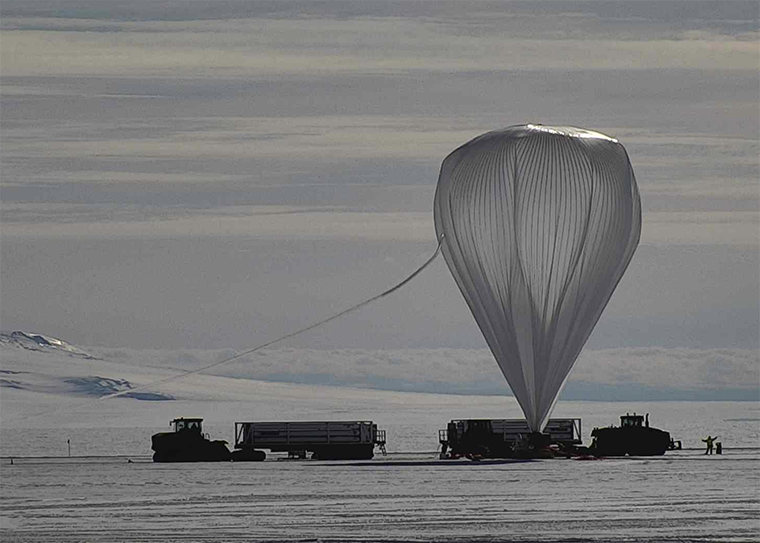
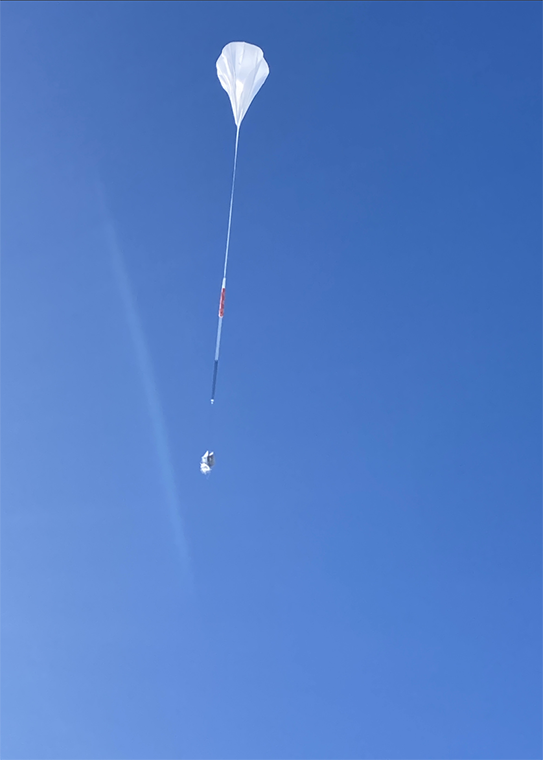
Funding: SPIDER is supported by NASA, through a grant from the Science Mission Directorate. Support in Antarctica is provided by the U.S. Antarctic Program, part of the National Science Foundation’s Office of Polar Programs.
